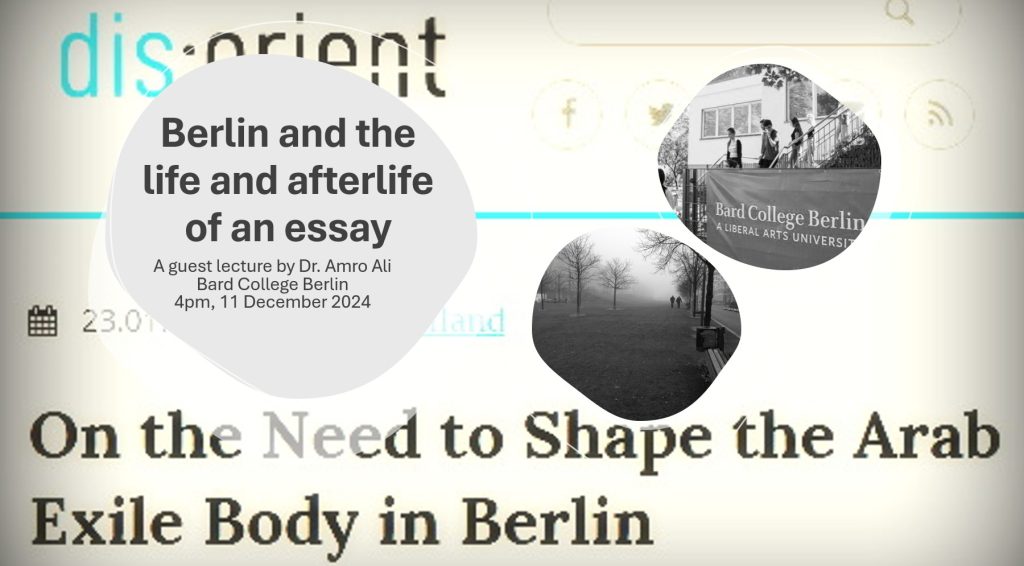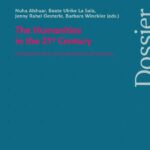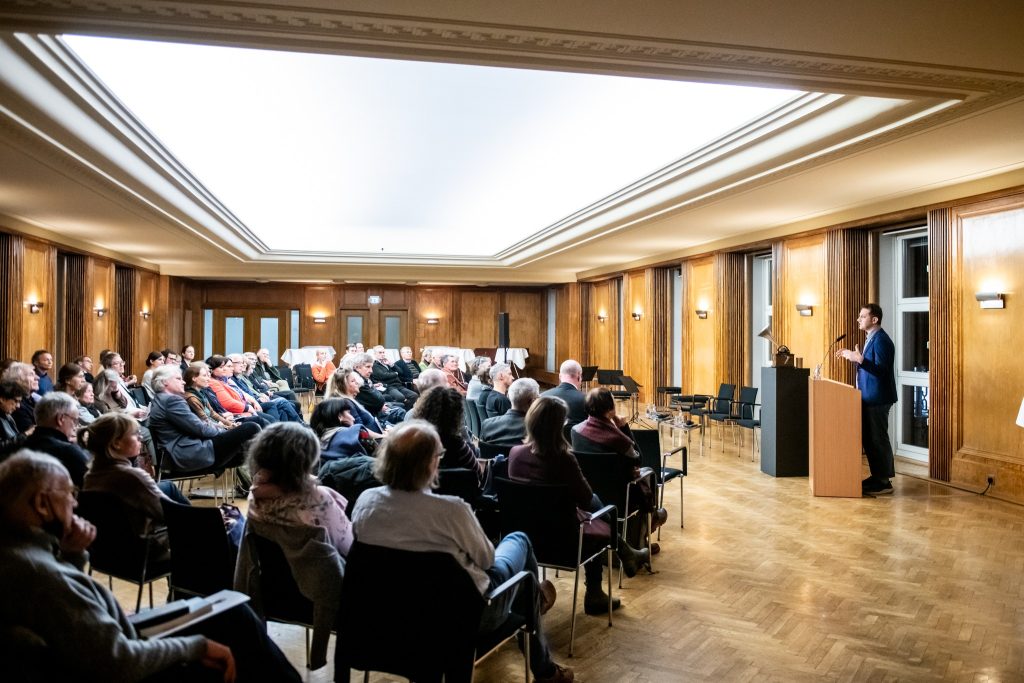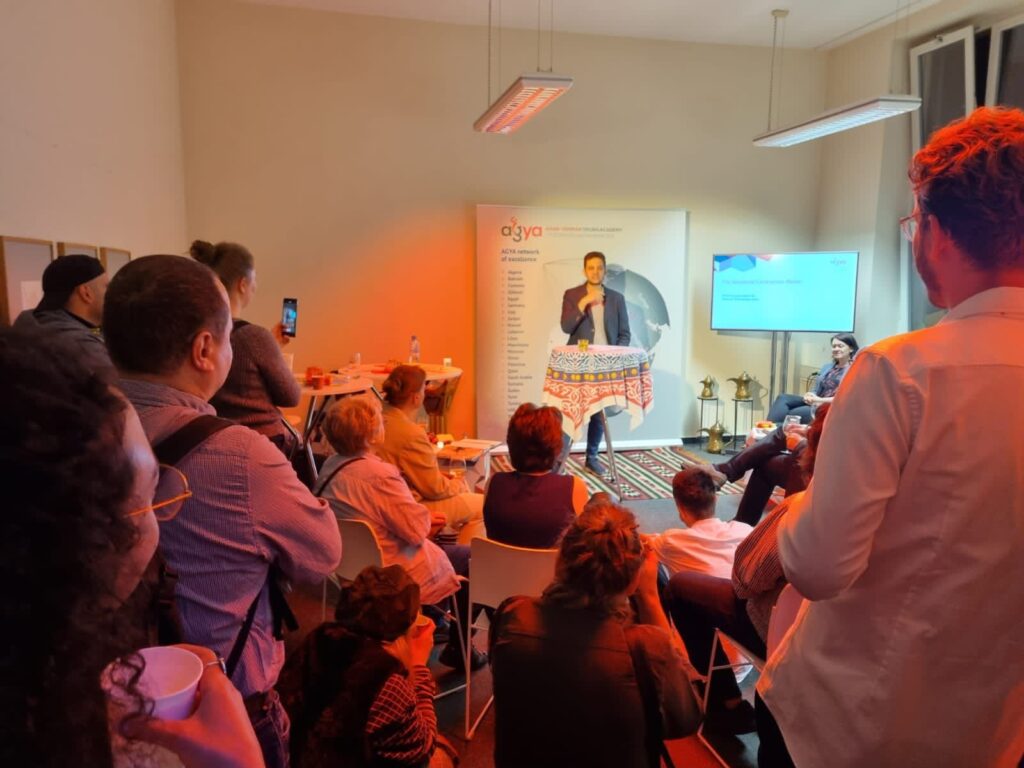This is a conversation with Amro Ali, author of the essay “On the Need to Shape the Arab Exile Body in Berlin.” He is also co-president of the Arab-German Young Academy of Sciences and Humanities, research fellow at the Freie Universität Berlin, and lecturer in sociology at the American University in Cairo (AUC).
What we talked about:
- Moving from the centers to the peripheries
- Why Berlin? And not London, Paris, New York or Istanbul
- Berlin as an incomplete city and Germany’s past
- Germany and the Arabs
- The Koblenz trial, accountability in Germany (but not in the Arab world)
- January 25 and the legacy of the Arab Spring for the exile body
- Home as the place where all attempts to escape cease
- Valuing public spaces
- Survivor’s guilt and impostor’s syndrome
- Challenges faced by Arabs and other non-white people in Berlin
- Meeting other Arabs for the first time in Europe
- The need for a connection between Berlin and other capitals, such as Beirut or Tunis
- Politics of language and the use of Arabic in the diaspora
Recommended Books:
- City of Exiles: Berlin from the outside in by Stuart Braun
- Representations of the Intellectual by Edward W. Said
- Exile, Statelessness, and Migration: Playing Chess with History from Hannah Arendt to Isaiah Berlin by Seyla Benhabib
Resources Mentioned:






